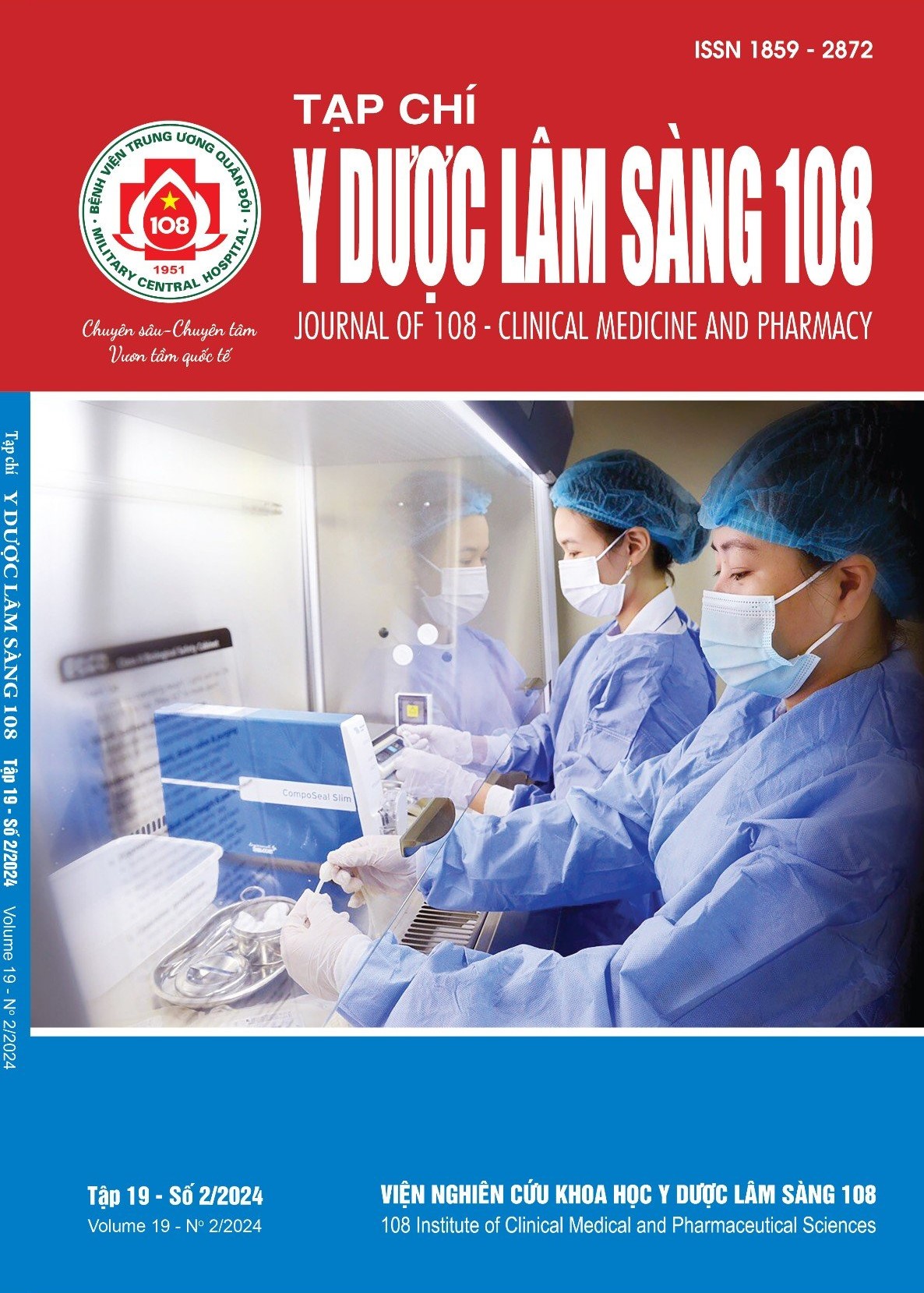Evaluating the anticoagulant effect of heparin according to the UMC health system protocol in extracorporeal membrane oxygennation
Main Article Content
Keywords
Abstract
Objective: This study evaluates the anticoagulant effect of heparin following the UMC Health System protocol in extracorporeal oxygen exchange (ECMO). Subject and method: 80 patients receving ECMO anticoagulated with heparin following the UMC protocol. Method: Prospective interventional study. Result: The female ratio was 58.8%. The duration of VA-ECMO and VV-ECMO support with median were 7 (5-9 days) and 9 (6-10 days), respectively. 43.8% of patients receving ECMO survived to discharge. The ACT test rates with target ACT value according to the protocol were high (74.4%). The average ACT value was 179.3 ± 8.8 seconds, with a heparin dose of 10.8 ± 5.1IU/kg/h. Significant differences in heparin dosage and ACT values were observed among the bleeding groups (p<0.05). Thrombosis and DIC incidence were 8.75% and 21.3%, respectively, with no recorded cases of ECMO membrane occlusion. Conclusion: The heparin anticoagulation protocol of the UMC Health System demonstrated initial efficacy in preventing membrane thrombosis.
Article Details
References
2. Nunez JI, Gosling AF, O'Gara B et al (2022) Bleeding and thrombotic events in adults supported with venovenous extracorporeal membrane oxygenation: An ELSO registry analysis. Intensive Care Med 8(2): 213-224.
3. Krueger K, Schmutz A, Zieger B, Kalbhenn J (2016) Venovenous Extracorporeal Membrane Oxygenation With Prophylactic Subcutaneous Anticoagulation Only: An Observational Study in More Than 60 Patients. Artificial Organs.
4. UMC Health System (2016) Adult ECMO Heparin Infusion Guidelines.
5. Intensivist RS and Frantzis P (2009) Royal Adelaide Hospital General ICU ECMO Guidelines, Jo Buttery. Nurse Educator.
6. Nguyễn Thị Xuyên, Nguyễn Anh Trí (2015)
Đông máu rải rác trong lòng mạch. Hướng dẫn chẩn đoán và điều trị một bệnh lý huyết học, tr. 139-141.
7. McMichael ABV, Ryerson LM, Ratano D et al (2022) 2021 ELSO Adult and Pediatric Anticoagulation Guidelines. ASAIO J 68(3): 303-310.
8. Colman E, Yin EB, Laine G et al (2019) Evaluation of a heparin monitoring protocol for extracorporeal membrane oxygenation and review of the literature. J Thorac Dis 11(8): 3325-3335.
9. Đào Xuân Cơ (2016) Đánh giá hiệu quả phác đồ chống đông bằng heparin trong kỹ thuật tim phổi nhân tạo (ECMO) của khoa Hồi sức tích cực Bệnh viện Bạch Mai. Tạp chí Y Học Việt Nam, tháng 10 - Số 2, tr. 144-149.
10. Mazzeffi MA, Tanaka K, Roberts A, Rector R, Menaker J, Kon Z, Deatrick KB, Kaczorowski D, Griffith B, Herr D (2019) Bleeding, thrombosis, and transfusion with two heparin anticoagulation protocols in venoarterial ECMO patients. J Cardiothorac Vasc Anesth 33(5): 1216-1220.
11. Bembea MM, Annich G, Rycus P et al (2013) Variability in anticoagulation management of patients on extracorporeal membrane oxygenation: An international survey. Pediatr Crit Care Med 14(2): 77-84.
12. Chang X, Li X, Guo Z et al (2016) Analysis of complications in 61 extracorporeal membrane oxygenation cases. Zhonghua Wai Ke Za Zhi 54 (5): 384-388.
 ISSN: 1859 - 2872
ISSN: 1859 - 2872
